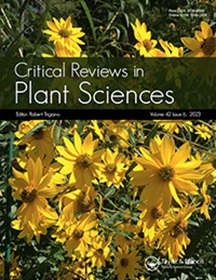超低棉酚棉:选择性基因沉默开辟大量植物蛋白资源改善人类营养
IF 6
2区 生物学
Q1 PLANT SCIENCES
引用次数: 51
摘要
全球棉籽产量含有~ 10.8万亿克蛋白质,以每天50克的速度可以满足~ 5.9亿人的基本蛋白质需求。然而,棉酚,一种存在于种子腺中的有毒萜类物质,使棉籽不适合作为人类食用的食物或非反刍动物的饲料。在种子特异性启动子的控制下,RNAi选择性地沉默了δ-二聚苯乙烯合成酶基因,使种子中的棉酚水平降低了97%,而不影响植物其他部位的棉酚和相关萜类物质的水平,而这些物质是植物抵御昆虫和疾病所需要的。由此产生的超低棉酚棉籽(ULGCS)被认为是安全的食品或饲料,更有效的单胃动物(在饲料转化率和蛋白质转化率方面)。在多个州进行的多年田间试验证实了该性状的稳定性和遗传性,纤维/种子产量、质量或农艺性能没有下降。ULGCS事件TAM66274于2018年10月由USDA-APHIS解除管制,FDA于2019年9月结束了食品安全咨询,并同意我们对其安全性的确定。在全球范围内采用TAM66274,其蛋白质的使用效率更高,范围更广,有可能显著改善营养安全,提高农民收入,而无需额外投入或种植面积,从而使棉花种植更具可持续性。本文章由计算机程序翻译,如有差异,请以英文原文为准。
Ultra-Low Gossypol Cottonseed: Selective Gene Silencing Opens Up a Vast Resource of Plant-Based Protein to Improve Human Nutrition
Abstract The global output of cottonseed contains ∼10.8 trillion grams of protein that can meet the basic protein requirements of ∼590 million people at a rate of 50 g/day. However, gossypol, a toxic terpenoid present in seed glands, renders cottonseed unfit as food for human consumption or as feed for nonruminants. RNAi, under the control of a seed-specific promoter, was used to selectively silence δ-cadinene synthase gene to reduce gossypol levels in the seed by 97% without affecting the levels of gossypol and related terpenoids in rest of the plant where they are needed for defense against insects and diseases. The resulting Ultra-low Gossypol Cottonseed (ULGCS) is considered safe as food or as feed for more efficient (both, in terms of feed conversion ratio and protein conversion ratio) monogastric animals. Field trials conducted over multiple years in multiple states confirm the stability and heritability of the trait with no diminution of fiber/seed yield, quality or agronomic performance. A ULGCS event, TAM66274, was deregulated by USDA-APHIS in October 2018 and FDA concluded its food safety consultation in September 2019 and concurred with our determination of its safety. Global adoption of TAM66274, with more efficient and expanded usage of its protein, has the potential to significantly improve nutrition security and boost farmers’ income without requiring additional inputs or acreage under cultivation, thus making cotton farming more sustainable.
求助全文
通过发布文献求助,成功后即可免费获取论文全文。
去求助
来源期刊
CiteScore
12.90
自引率
1.40%
发文量
15
审稿时长
>12 weeks
期刊介绍:
Critical Reviews in Plant Sciences focuses on presenting in-depth and up-to-date reviews of timely and/or cutting-edge subjects in the broad discipline of plant science, ranging from molecular biology/biochemistry through the areas of cell biology, plant pathology and physiology, genetics, classical botany, and ecology, to practical agricultural applications. Articles in the journal provide an up-to-date literature base for researchers and students, pointing the way towards future research needs. The journal is also a significant source of credible, objective information to aid decision makers at all levels.

 求助内容:
求助内容: 应助结果提醒方式:
应助结果提醒方式:


